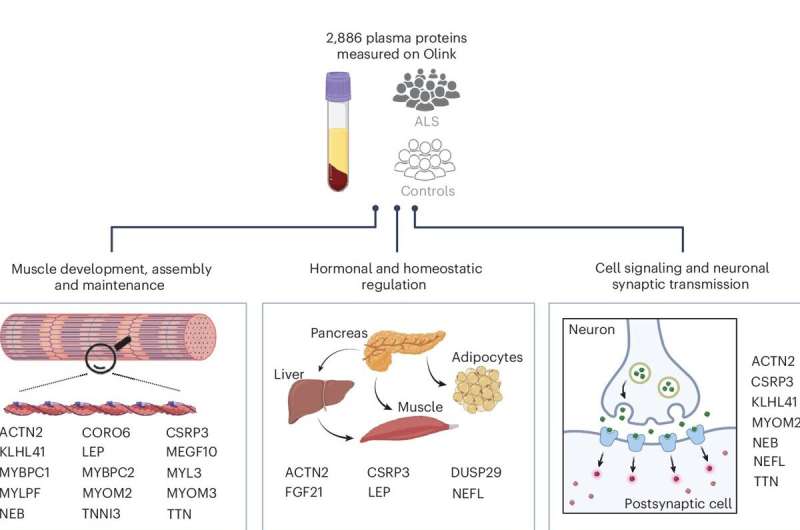Researchers at the Johns Hopkins University School of Medicine and the National Institutes of Health, in collaboration with the UK Biobank and the University of Turin, Italy, have identified a distinct set of proteins in blood that can detect ALS with remarkable accuracy up to a decade before symptoms appear. Results of the new study, published in Nature Medicine, lay the foundation for a much-needed diagnostic test for ALS.
Using an advanced platform that measured nearly 3,000 neurological and skeletal muscle proteins in blood samples from over 600 participants, researchers applied machine learning to isolate a protein signature predictive of ALS. The protein they eventually modeled was more than 98% accurate in distinguishing patients with ALS from healthy individuals and those with other neurological diseases.
“We see the light at the end of the tunnel here, and that target is an approved and available blood test for ALS,” says co-investigator Alexander Pantelyat, M.D., associate professor of neurology at the Johns Hopkins University School of Medicine and director of the Johns Hopkins Atypical Parkinsonism Center.

